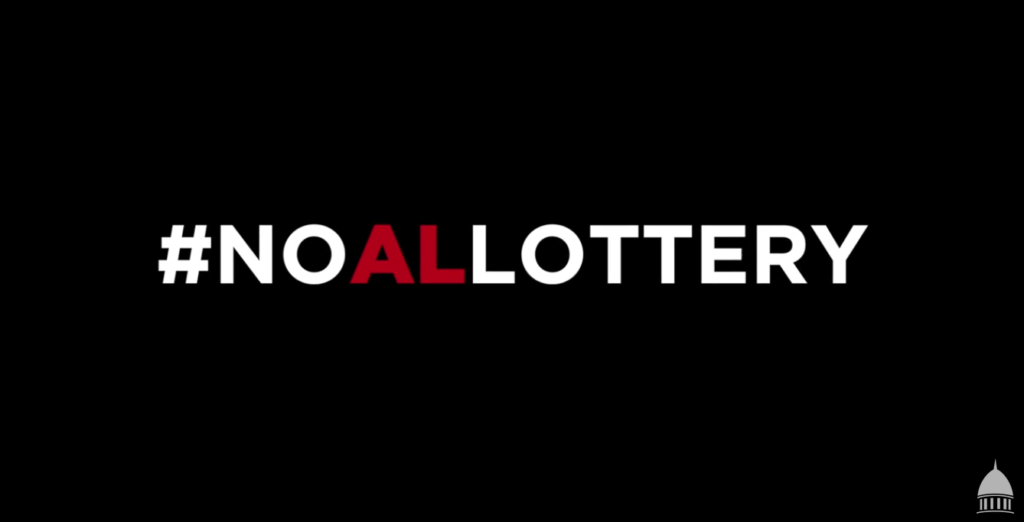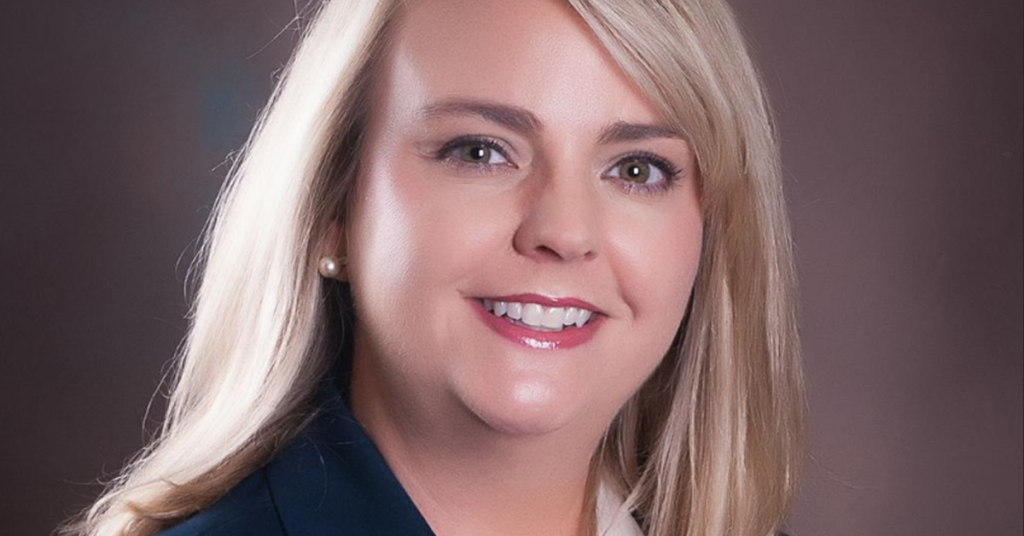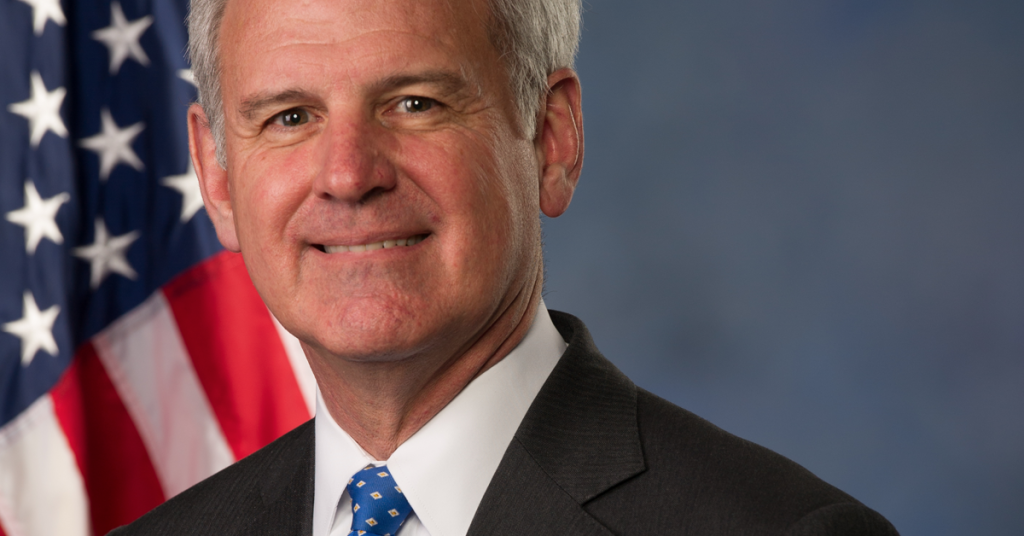Email Insights: Alabama Policy Institute calls state lottery ‘voodoo budgeting’

The Alabama Policy Institute (API) sent an email with a video Wednesday that calls Gov. Robert Bentley‘s proposal for a state lottery “voodoo budgeting.” In July, Bentley called for a special session of the Alabama Legislature to push through legislation that would implement a state lottery. In his announcement, Bentley assured the people of Alabama a lottery would be a “permanent solution” to the state’s budget woes. According to API, this, among other things in his announcement, is simply not true. Watch API’s video and read the full email below: Some promises are too good to be true. Last week, Governor Bentley told the people of Alabama that implementing a state lottery would be “a permanent solution” that “will provide funding that we can count on year after year.” This is simply not true, as evidenced by the experiences of other states with lotteries. Whatever one’s opinion might be on the idea of a state lottery in Alabama — and we at API, of course, stand firmly against it — state leaders arguing for a lottery owe the people of Alabama an honest argument, supported by facts. API will continue to do our part to keep Alabama’s politicians honest. The people of Alabama deserve nothing less.
Personnel note: Former Gov. Bentley staffer joins Birmingham law firm

Blake Hale Hardwich, who recently left Alabama Gov. Robert Bentley‘s office as deputy chief of staff for administration, has joined Birmingham firm Adams & Reese as special counsel on the government relations practice team, the firm announced Tuesday. Hardwich served two years in the Bentley administration where she advised on legislative matters, public policy initiatives, strategic planning efforts, and administrative initiatives. Prior to her government role, Blake served as director of The Alabama Prosperity Project, an online educational resource designed to inform voters of legislative issues and instill in them a desire to take action. Blake also previously served as director of external affairs for Manufacture Alabama, a trade association representing Alabama-based manufacturers and their partner industries and businesses. “We are proud to welcome Blake to Adams and Reese,” said Britton Bonner, the law firm’s economic development team leader, partner in charge of the firm’s Mobile office, and a government relations attorney. “Her unique public and private sector experience will continue to enhance our growing governmental relations team. Blake’s addition further strengthens our ability to help meet the business objectives and economic development goals of our clients. We are thrilled to have Blake join with attorney Mark Gaines as they lead our governmental relations practice in Alabama.” Hardwich earned her J.D. from Samford University’s Cumberland School of Law in 2002 and a B.A. in political Science from Auburn University in 1999. “I am excited to join a firm with such a strong presence in government relations and a focus on helping clients pursue economic development projects throughout the Southeast,” Hardwich said of her new position. “I look forward to working with other Adams and Reese attorneys to turn client issues into solutions.” Hardwich is yet another staffer who’s moved through the revolving door of Bentley’s office this past year. His longtime spokeswoman, Jennifer Ardis, resigned in June. Seth Hammett, his former chief of staff, resigned last October.
Bradley Byrne to Barack Obama: use unspent Zika funds

As the Zika virus continues to spread across the country, the Obama Administration is sitting on hundreds of millions of dollars intended to fight the virus. Alabama 1st District U.S. Congressman Bradley Byrne wants to change that. Wednesday, Byrne sent a letter to President Barack Obama calling on his administration to use the unspent money fighting the virus rather than continuing to try and score political points. “The Zika virus is a real and serious threat to the United States, especially here on the Gulf Coast, ” said Byrne. “It is incredibly troubling that the Obama Administration is sitting on unspent funds that could be used to fight the Zika virus right now, but they are instead spending all their time trying to score political points.” In April, the Obama Administration announced that $589 million in mostly unspent money from the Ebola disease would be redirected to combat the Zika virus. As of last Friday, the Office of Management and Budget confirmed that $385 million of that money remains unspent. Despite its failure to spend the money it has available, the Obama Administration continues to demand Congress approve a $1.9 billion anti-Zika plan they submitted in February that includes no funding offsets. Instead of using Obama’s plan, the House passed a $1.1 billion funding bill to address the virus, but the bill was blocked by Senate Democrats and did not pass before the Congressional summer recess. In recent days, Florida state health officials have confirmed nearly 15 cases of the virus being transmitted within the United States. On Monday, federal officials issued an unprecedented warning, advising pregnant women and their sexual partners to avoid an area north of Miami’s downtown. Administration officials say this increases the urgency for more funding. Byrne agrees. “Additional funding is necessary, and I continue to call on the Senate to pass our responsible $1.1 billion package to help with Zika prevention, research, and treatment,” continued Byrne. “However, until the process moves forward, the Obama Administration should use the money they have available right now.” Read Byrne’s full letter below: Dear President Obama: As the representative of a district threatened by the Zika virus, I am writing to express my great concern at your Administration’s allocation of resources to combat Zika. Since February, you have urged Congress to appropriate $1.9 billion to combat Zika. Congressional Republicans joined your call for an immediate response to this crisis; however, at a time when this country is $19 trillion in debt, my colleagues and I have simply asked that any funding be targeted and offset from other spending. To that end, House Republicans requested the large amount of money left over from the Ebola threat be used to address the Zika virus. I was pleased your Administration announced on April 6, 2016 that $589 million, the majority of which was unspent Ebola funding, would be redirected to combat the Zika virus. However, as of last Friday, the Office of Management and Budget confirmed that of this $589 million, $385 million is unspent. Astonishingly, as your demand for $1.9 billion continues, 65 percent of the funds already available to the Administration for Zika have not been used. Now, in the nearly four months since April 6, the Zika threat is upon us. Zika has reached Florida and may spread into Alabama soon. For the first time in history, the Centers for Disease Control and Prevention has issued a travel warning inside the continental United States for pregnant women. Moreover, in Puerto Rico, positive tests of the virus have jumped from 14 percent in February to 64 percent in June, and 2 percent of the island’s blood supply has tested positive for the Zika virus. I agree that additional funding is necessary, which is why the House passed a $1.1 billion bill on a bipartisan basis to fund Zika prevention, treatment, and research. Despite the fact our bill includes the same level of funding that previously received overwhelming support in the Senate, our bill has fallen victim to a filibuster by Senate Democrats. It seems that some people are more interested in using the Zika virus as a tool to score political points on the campaign trail instead of actually working to address the serious issue. The threat of Zika is too important to the people of Alabama and other southern states for the current situation to continue. I urge you to take immediate action to ensure the available funding resources are swiftly and properly allocated by federal agencies to combat the Zika threat.
Uber to return to Auburn

The City of Auburn has given Uber the green light to return to the city — just in time for football season. Tuesday night the Auburn City Council approved an ordinance to amend the city’s vehicle-for-hire rules for ridesharing services Uber and Lyft. “Tonight, the city council created a permanent home for Uber in Auburn, and we look forward to bringing safe, affordable transportation options and flexible work opportunities to the community,” said Uber spokeswoman Evangeline George after Tuesday night’s decision. “Access to a reliable ride at the push of a button will help empower students, residents and visitors alike to make safe choices at the end of a night out.” Officials say the ordinance adds a section to the vehicles-for-hire code, which sets separate regulations for companies that use an internet application to connect passengers and drivers, stating that background checks are required, but may be performed by the company itself. Opelika-Auburn News reports that city documents reveal “Uber has reviewed this ordinance and our contact has expressed that they are agreeable to this language.” Uber previously operated in Auburn from August 2014 to January 2015, but was forced to leave after the city council passed an ordinance requiring ridesharing companies to have the same level of insurance coverage as taxi companies, as well as to display a city-issued driver’s business license. Uber could return to the Auburn streets as early as next month.
KKK member, 1963 Birmingham church bomber denied parole

The Alabama Board of Pardons and Paroles has denied parole to an 86-year-old Ku Klux Klansman convicted of killing four African-American girls more than 50 years ago. The decision to keep Thomas Edwin Blanton Jr, imprisoned was met with applause at the hearing in a Montgomery courthouse Wednesday morning. Blanton is the last surviving KKK member convicted in 2001 for the 1963 Ku Klux Klan bombing of the 16th Street Baptist Church that killed the girls, who were at Sunday services — Addie Mae Collins, Denise McNair, Carole Robertson and Cynthia Wesley — and that injured a fifth girl, Sarah Collins, the sister of Addie Mae Collins. Almost 30 years after the bombing, Blanton was sentenced to life imprisonment for planting a bomb outside the church during the height of the civil rights movement. His two accomplices, Robert Chambliss and Bobby Frank Cherry, were also convicted of murder and have since died behind bars. Across the country, civil rights activists opposed the parole, saying Blanton has served only 15 years of four life sentences. Attorney General Luther Strange was among those in Alabama who joined in the disapproval of the potential parole of Blanton. In a July 29 letter to the parole board, AG Strange stated, “Thomas Blanton was convicted of one of the most heinous crimes in Alabama history — the murder of four young girls who were attending Sunday school. The cold-blooded callousness of his hate crime is not diminished by the passage of time, nor is any punishment sufficient to expunge the evil he unleashed. Because he has never shown any remorse whatsoever for taking the lives of those innocent little girls, justice can only be served if Thomas Blanton spends the rest of his life in prison.” Wednesday’s justice is perhaps only temporary. Blanton can be considered for parole again in five years.
Alabama business roundup: Headlines from across state – 8/3/16 edition

According to federal figures where does lotto money really go? Who’s hiring 500 new employees? Answers to these questions and more in today’s business roundup: AL.com: Amid Alabama lottery proposal, federal figures show where lotto money really goes Alabama is apparently so broke that it might be forced to adopt a lottery to raise funds, giving up on a longtime abstinence that would see it join a group of 44 other states where the ‘game of chance’ is not only legal, but raising crucial revenues for services such as education, tax relief and infrastructure costs. Each year tens of billions of dollars are raised across the country by lotteries in order to plug holes in state budgets, allowing lawmakers to keep taxes low and state agencies functioning. But despite claims by most states that lotteries are largely charitable organizations, the latest (2014) U.S. Census Bureau statistics on lottery revenues show that only around 33 percent of money raised by the 44 states is made available to spend on state services. The rest, around 62 percent, is given in prizes, while around 5 percent is set aside for administrative fees. As part of his pitch for an Alabama lottery, Gov. Robert Bentley made an impassioned plea late last week claiming that a state lottery would bring in as much as $225 million a year, which he said would be spent on services for children, the mentally ill, law enforcement and “those in the most need,” as well as the contributing to the state’s General Fund. “The time has come for us to find a permanent solution,” said Bentley. “This solution will provide funding that we can count on for year after year without ever having to raise your taxes or put one more band-aid on our state’s money problems.” And those so-called money problems are becoming more acute every year as Alabama looks to deal with debt that exceeds $60 billion. While the scant details of Bentley’s lottery spending plan are generally in line with how other states claim they spend lotto revenues, his figure of $225 million would depend on what percentage of lottery revenue the state will allocate to prizes, administration and to state services. In nearby Louisiana, which has a similar population and economy to Alabama, the state generated around $432 million in lottery revenues in 2014, according to the U.S. Census Bureau. Of that, $160.5 million went to the state treasury, $237 million was given out in prizes and $26 million spent on administering the lottery. What isn’t immediately clear is whether Bentley’s $225 million estimate is before or after administrative costs and prizes are discounted. The North American Association of State and Provincial Lotteries offers a general view of how each state spends its lottery revenue, although there is little centralized documentation that shows the exact details of how every dollar is spent. However, some state lottery websites do offer more information on post-prize expenditure. For example, California directs around $1.6 billion of its state services-assigned revenue toward education, while in Pennsylvania almost all of the $1 billion it raises for state spending is used exclusively on caring for pensioners. But even these high figures account for a far less amount that what is given out in prize money. But there are some states that buck the big-prize trend. For example, Rhode Island, West Virginia, Oregon, and South Dakota divert around 60 percent of all lottery cash raised toward state-funded programs, such as education, tourism, economic development, gambling addiction and tax reductions. Only a very small amount finds its way to prizewinners. In West Virginia, for example, $509 million of the $654 million pot was directed into state services in 2014, while only $111 million was given in prizes. The rest, $33 million, was spent on administrative costs. Whether or not Alabama will be similar to one of these states is yet to be seen. Read more here. Alabama News Center: How Google came to choose Alabama for its $600 million data center Getting Alabama to come out on top of Google’s own search results for its high-tech data center took thousands of emails and texts, 20 visits from the company to north Alabama and the last-minute signature of a mayor named Bubba. The key players in the recruitment of the $600 million Google data center to Jackson County gave a behind-the-scenes look at the twists and turns the project took before settling on 500 acres at a power plant that was shutting down. The recruitment was the subject of a panel discussion at last week’s Economic Development Association of Alabama summer conference. It was a project shrouded in secrecy. At various times, it went by the codename of “Project Zebra” and “Project Spike.” Officials involved in the recruitment had to sign nondisclosure agreements even though they didn’t know the name of the company. In April 2014, Tennessee Valley Authority project manager Spencer Sessions took the first call and began trying to find sites that matched the criteria. Bob Smith, project manager with the Alabama Department of Commerce, was brought in a few weeks later. He said Alabama had won a fair number of data centers the previous four years — projects that were heavy with capital investment because of the technology infrastructure, but don’t have the same number of employees as large manufacturing plants. Site Selection magazine, an economic development trade publication, had cited Alabama’s success in the data center arena. Smith said officials recognized that the state’s incentives were more geared toward manufacturing but needed to focus on data centers. The state passed such incentives in 2012. Alabama now had a new tool in the toolbox and waited for an opportunity to use it. Meanwhile, TVA had a site in Jackson County certified as ready for a data center. “We had this certified data center site right next to the community college,” said Dus Rogers, president and CEO of the Jackson County Economic Development Authority. The only problem is Project Zebra (or was it Project Spike by this time?) didn’t care for that site and wanted officials to think
August Recess agenda: Alabama 1st District Rep. Bradley Byrne

It’s August, and that means the Alabama Delegation has put business on hold in Washington, D.C. until after Labor Day and members have made their way back to the Yellowhammer state for August Recess. This year’s recess is an unprecedented seven-weeks, with Congress taking additional time off to attend the presidential conventions. While all of this sounds like vacation, the “recess” is actually designed to give members of Congress an opportunity to reconnect with the constituents they represent, and travel to places across the globe relevant to legislation in Congress, and to strengthen U.S. relations in those countries. Alabama 1st District U.S. Rep. Bradley Bryne has his plate full this August. He began his time away from D.C. visiting Rim of the Pacific Exercise (RIMPAC) — the world’s largest international maritime warfare exercise — in Hawaii to see the Mobile-built Littoral Combat Ship in action. He next took part in a ride-along with the Baldwin County Sheriff’s office, where he had the opportunity to see firsthand some of the challenges law enforcement officers face on a daily basis. Yesterday, Byrne embarked on his “Better Way to Fight Poverty Tour” where he continued to spread the Better Way agenda that brings a plan to end poverty to the people of Southwest Alabama. Byrne host a bevy of Town Hall meetings, where he’ll answer questions and hear from constituents about issues concerning them. Below is his upcoming Town Hall schedule: Citronelle: 11:30 a.m., Aug. 8 at Citronelle City Hall (19135 S. Main St.) Grand Bay: 3 p.m., Aug. 9 at Grand Bay Senior and Community Center (11610 U.S. Highway 90) Stockton: Noon, Aug. 22 at Stagecoach Cafe (52860 Alabama Highway 59) Summerdale: 2:30 p.m., Aug. 22 at Summerdale Municipal Complex (502 W. Lee Ave.) Byrne’s also holding annual roundtable meetings with school superintendents, local economic development leaders, and college/university presidents. He’s also scheduled several speaking engagements with local organizations, school visits, and business tours. Another large event he has planned is the “Women’s Forum 2016: Charting Your Own Course” in downtown Mobile. Featuring keynote speaker Washington-state U.S. Rep. Cathy McMorris Rodgers, the forum will seek to empower women to think with a different perspective for incredible personal and professional results. The forum will also feature a panel discussion of local women leaders who will address securing the healthiest possible future through methods of community, finance, cyber security and personal protection. The forum will run from 8:30 a.m. to 11:30 a.m. on Friday, Aug. 26.
Phil Williams: It’s time for fundamental budget reform

A few nights ago I watched in tense disbelief as a man jumped from an airplane at 25,000 feet without a parachute! As an Army Paratrooper, I never exited a plane without both a main chute and a reserve. This man jumped from almost five miles high into a net without either. It was an incredible feat of skill and daring with no chance of a do-over. The jumper had to get it right the first time. Let me use that as an analogy to discuss the coming special session of the Alabama Legislature: we need to come in the door of the Statehouse and stick the landing. Let’s nail the net the first time. Our state is one of only three in the nation that bears the self-imposed load of having two budgets (Education and General). Every year we find ourselves in the throes of an annual political Kabuki dance called budget negotiations that usually involve the tense discussions of surplus funds in the Education budget versus shortfalls in the General Fund. By law, nearly all of the growth revenues that go up with a good economy benefit only the Education budget, while generally flat revenues go to the General Fund. Too often, the General Fund is like Oliver Twist, an orphan child forced to beg for more or go hungry. Yet, I recognize the valid concern that if the budgets were combined, the two runaway expenditures in the General Fund (Medicaid and Corrections) could eat education alive. It does not need to be this way. Each budget is vital to our state’s interests. Public education is the backbone of our economy and a vital link between Alabamians being free of dependency on the state and able to thrive in the workforce. Likewise, the General Fund supports vital services like State Troopers, Mental Health, Medicaid, Prisons, the National Guard, and thousands of state employees. Neither budget can survive in a state that does not care for both. I recently met with the leadership of both the House and the Senate to propose what I simply call “the Two-Step Plan”. This plan combines fiscal reform with the potential for increased revenues gained by a lottery. And the entire plan engages the people of this great state by giving them the final say in the form of a vote. To be clear, I have never been a fan of lotteries. I don’t think it is wise stewardship to see games of chance as an all-encompassing solution to our budget woes. But if a solid lottery bill came before me that was tightly governed, expressly disallowed the expansion of casino gaming, benefited the General Fund, and was voted on by the people, then I would not work against it. I am a fiscal hawk, and firmly believe that we must fix the broken manner in which revenues are distributed within our multi-budget structure. The Two-Step plan proposes to pass separate but linked pieces of legislation. The first is a version of what was proposed by my colleague Senator Paul Sanford during the 2015 Regular Session that establishes one fund into which all revenues are deposited. From that fund the revenues would be allocated to the two budgets, 76% to the Education Trust Fund and 24% to the General Fund. The second bill would be a lottery whose revenues are collected and deposited into the same fund and divided in a like manner. Each of the two bills must first pass the Legislature, and then both must also pass a majority vote of the people. If one bill fails, they both fail. Those who want fiscal reform must engage the lottery issue, and those who advocate for a lottery must accept long-term budget reform. In the end, the people of this State will decide the ultimate outcome. Budget analysts have indicated that enactment of the Two-Step Plan could see a net increase of over $200 million to the General Fund and almost $100 million to the Education Trust Fund. At that point, discussions of moving revenues between the budgets would be unnecessary. Likewise, any concerns that purists have of a future consolidation of the two budgets would also be over. As the Chair of the Senate Committee on Fiscal Responsibility, I believe that this plan is very doable. It allows everyone to have a say in the process, achieves true budget reform, and ends the lottery debate forever. If this budget plan fails at the polls, then the people will have spoken, and we will return to austerity measures and face the inevitable debate of future taxes. This proposal is bold, audacious, and its time has come. The special session is upon us. Let’s stick the landing! ••• Phil Williams represents Etowah, Cherokee, Dekalb and St. Clair counties in the Alabama Senate. Follow him on Twitter for the latest legislative updates: @SenPhilWilliams.


